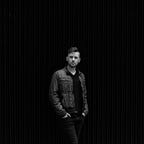Suffering & Flow
In Buddhism, Stoicism, and with certain modern father figures like Jordan Peterson, we hear that “life is suffering.” From Peterson at least, we hear this as unassailable fact, but that one way of mitigation can be found through the cultivation of personal meaning.
In other words, if you have a big enough why, you can endure any how. You cannot change the fact that you’ll suffer, but you can make it manageable if you set your life up with an ontological framework — a set of values which makes it all worth it.
Recently I began to question if it’s actually fair to label all of life as suffering.
I’ve always internally felt that this dictum was imprecise. In my life, I’ve had many times, many periods even, where I was not suffering, and where life did not appear to be suffering, or even about the obligation to create meaning as a defence against suffering.
During those periods, I was experiencing a lot of what the internet is calling “flow.” This is a state of non-mind, of being completely embodied and absorbed in what you are doing, and it’s what people have been chasing and revering since the dawn of time.
This came up as I was playing drums. Because I have a decent level of skill with percussion, any time I sit down at the kit, I eventually break into a state where I am no longer thinking in the same way as before. I become focused in a non-effortful way, simply moving, rhythm-ing, being moved by whatever I am playing. The conscious will in my playing even begins to disappear, and I am just playing, being played. That’s flow.
And during these times, the idea that life is suffering couldn’t be further away. I’m not concerned with any of the things which could cause me to believe that. I’m divested of my mental loops, and my anxiety melts.
I experience the same phenomenon while writing, playing sports, composing, running, lifting weights, having an incredible conversation, cooking, etc. While cooking, I am not thinking “life is suffering.” I am just cooking. I am not thinking. I am flowing. When I am in that state, I feel most alive, most “me,” and yet the least amount of my personality is there to interfere. I am just being.
I think it’s unfair and inexact to describe life as suffering, mainly because I haven’t seen how the proponents of this idea can account for flow. Perhaps life is suffering because the flow state must always subside and move into another state, a state in which what bothers or worries you becomes more immediate again.
But I wouldn’t say that because this stateless state must give way to the ego-mind, “life is suffering.” What that looks like to me is instead that all life is change. That we live in a perpetual in and out, a yin-yang dynamic which never stops churning.
You will suffer. You will encounter incredible challenges. Yet to say that life is suffering, and that we are caught up in a brutal reality of pain, is to me simply not the case. The existence of flow states, which Buddhists themselves chase through meditation, is proof enough to me that this idea is only a half-truth. Life has suffering in it, sometimes an excruciating amount. Suffering is a fact of life. But life is not suffering. There is much more to life.
You might say this is a semantics problem. But I think semantics is everything in this case. How you define life will determine your experience of it. I’m not shy of suffering. In fact, ironically enough, I think that a great deal of flow can be found through suffering.
Have you ever been in intense physical pain, like being at the dentists? Have you noticed that, when you just feel into the pain, completely detach yourself from the mental narrative around it, and just be it — it somehow subsides a bit, and you become very present?
This is very difficult to maintain, but I this is what endurance athletes do. Running 135 miles through Death Valley in the summertime is the ultimate intersection of flow and suffering. Such people find immense flow in transcending their physical limits, in transmuting the suffering of their bodies with the power of the mind.
The journalist Stephen Kotler, who has devoted his life to the study of flow states, has said that he believes our leaning into and cultivation of flow on a societal level is basically our only way out of our current predicaments. I think he’s right. We are at our best when in flow, and arguably in spite of ourselves. It’s at those times, when we move beyond our usual suffering and repetitive behaviours, that the spark of God can illuminate us, bringing forth solutions which we could have never before imagined.
It’s not enough to just suffer through life, even if we bear a cross of immense meaning to get us through. Flow offers a different angle. Through flow, we can serve at our best. If one reason for being alive is to be of service, the people who seem to do this best are those who have made flow a transcendent value. A doctor, saving someone’s life — he’s in the flow. A national sports hero, making the impossible play at the last second — she’s in the flow. Flow transcends suffering.
